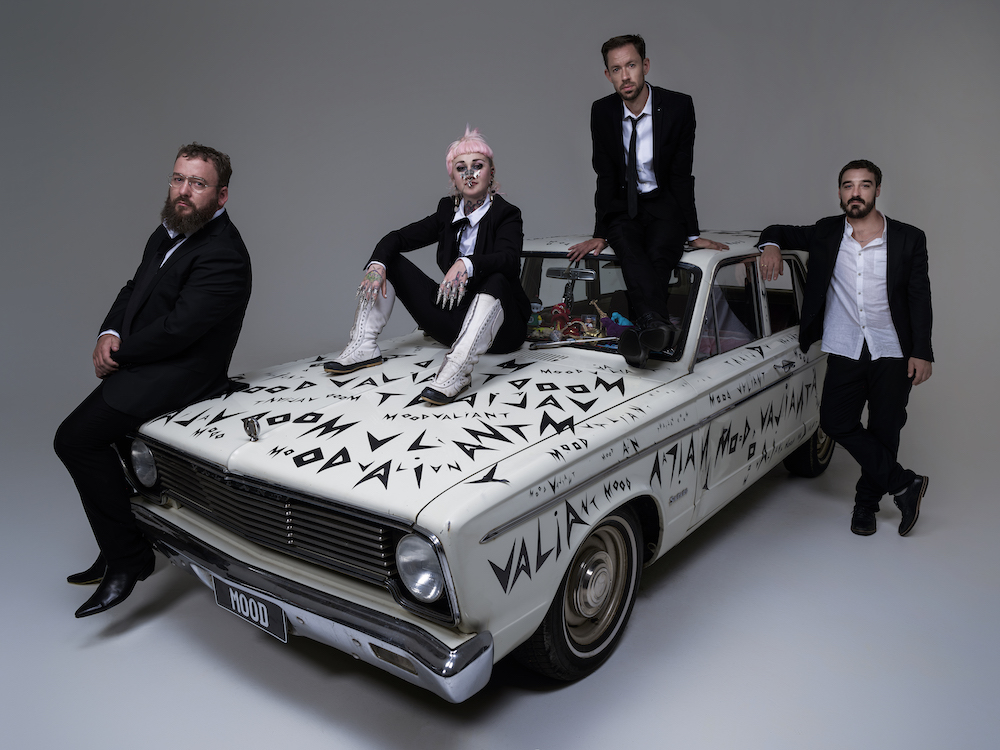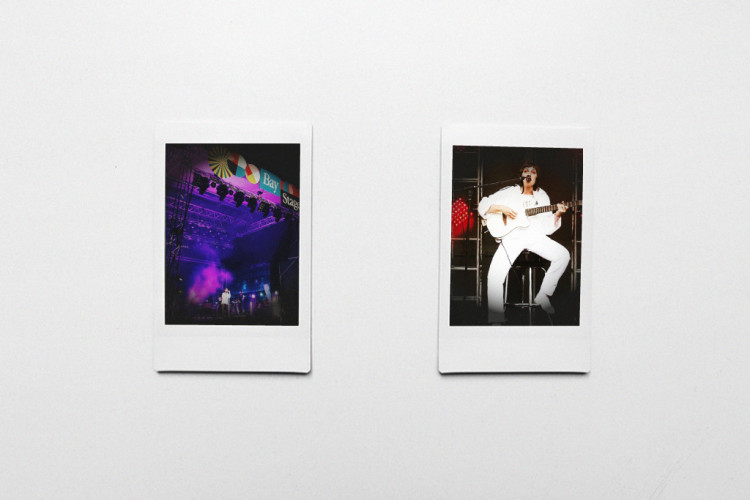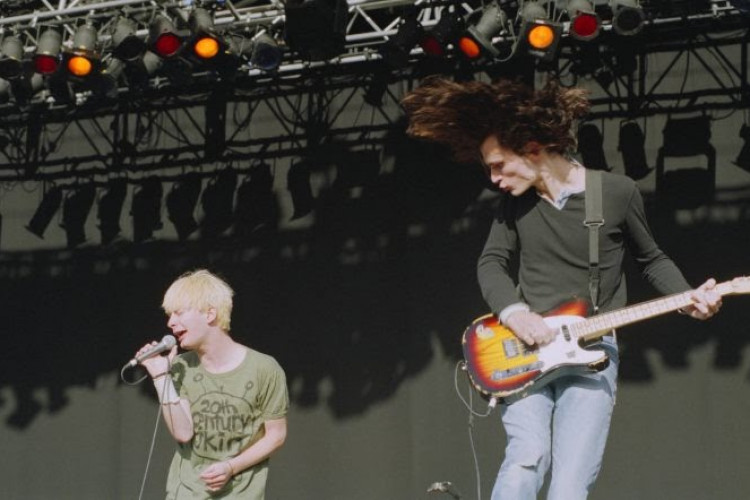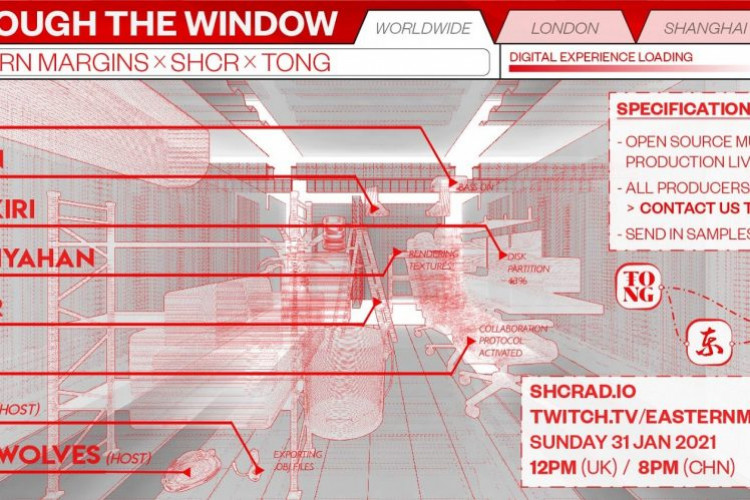
Hiatus Kaiyote on the Irrelevance of Genre and NFT as The Future of Music Industry
We chatted with Simon Mavin of Hiatus Kaiyote about how they have evolved from “Choose Your Weapon”, the opportunities laid out with NFTs and working with Arthur Verocai in their newest album.
Words by Ghina Sabrina
When hearing music, it is often that we try to put a finger on which genre it belongs to. Especially when we start hearing familiar sounds that we had listened to moments before. That is not the case with Hiatus Kaiyote, the Melbourne-based band consisting of Nai Palm (vocals, guitar), Paul Bender (bass), Simon Mavin (keyboards) and Perrin Moss (drums, percussion). It’s best to describe them as genre-fluid as their music moves seamlessly between genres, and that’s exactly how they were able to catch everyone’s attention – being nominated for two GRAMMYs in the process. We had the opportunity to speak with Simon Mavin about how they have evolved from “Choose Your Weapon”, the opportunities laid out with NFTs and working with Arthur Verocai in their newest album.
It’s been 6 years since your last release “Choose Your Weapon”. How has Hiatus Kaiyote grown since then?
Pretty massively. I guess when we dropped “Choose Your Weapon” we went into a pretty big touring slog. We did a couple of years touring around the world and that was a big life-changing thing to do because it’s pretty insane going for big tours and for a number of years, it can really change your view on the industry and change the way you think reality works. You’re on the road so much and playing so many shows – it’s an incredible thing to do but it also definitely changes you. I think that really made us get quite hungry to come home and work on new music because we were just playing the same music over and over. And everyone in the band is quite expressive, creative and likes to work on new stuff all the time and it’s a difficult thing to be creative on the road outside of the gig. So I think that was one thing that everyone was really hungry to come home and do.
You’re on the road so much and playing so many shows – it’s an incredible thing to do but it also definitely changes you.
We got home and we sort of started working on the new record as soon as we got home. We’ve been tracking and recording this new record for a number of years and personally, everyone went through some crazy shit. Nai (Nai Palm) went through breast cancer and has fought that and came out on the good side which is fantastic. I got married and Bender (Paul Bender) bought a warehouse to make a studio. Everyone’s just going through pretty major personal things in that time, but the music and the way that we write and the way that everyone’s creative, I don’t think it’s changed that much. You still create from your life experiences and you’re always going to have pretty crazy things that are going on in your life, so I think the good thing about Hiatus is that there are no limitations to the way that we write and the things that we write about. With that in mind, it’s kind of hard to pinpoint what it is that we do when we write. It’s just whatever, you just go with it. It’s difficult to say that the music has grown because it’s just going in the direction that it wants to go.
It’s difficult to pinpoint your exact genre as it moves seamlessly between jazz, hip hop, swing, soul to electronic. It’s as if you write as your body moves. How do you usually settle on a particular sound when writing music?
It just kind of falls into place really. I think it’s a very song-by-song specific thing. Someone would bring an idea in and the music will kind of speak to everyone in the way that it does. So you know that everyone’s got their own interpretation of how it goes and generally whoever’s got the strongest interpretation kind of leads the way if that makes sense. It can be a blessing to be in a democratic project but also a curse. It’s got both sides but there’s always a balance.
It’s just that thing where everyone’s really creative in the project and everyone’s quite headstrong about the sound so they want to bring forward the songs that they want to create. Nai, on one hand, will sometimes write entire songs from scratch and have really strong ideas about all the parts and we’ll all play those and then other times she’ll bring in a rough sketch. Then sometimes it’ll be the same with Perrin (Perrin Moss), who’ll bring in something that’s quite strong and we’ll all follow his vision. Same with Bender and then same with me. I think that’s the reason that it becomes quite diverse genre-wise just because ultimately there’s more than one vision that’s being portrayed in this band. It’s funny to say that because I think it wouldn’t be like that if everyone wasn’t so headstrong with their approach to music. It really depends on who’s tired on which day (laughs).
I think it’s also because everyone listens to quite a lot of different music. There’s a massive palette that everyone’s influenced by. Everyone’s got their own love, their own specific music that they’re really passionate about and I think that’s kind of one of the reasons that it sounds like it sounds because we all don’t love the same shit. We all probably like it, but there are specifics that we all really fall on.
Our musical backgrounds and the way we learned music, it’s all very different. Everyone learned music very differently. I came from a more institutionalised approach where people were teaching me things about music whereas Perrin, Bender and Nai really came from the world of learning what they really wanted to learn. There’s a big difference between those two things. And that really sculps the musician that you are because it’s kind of a bigger question, I guess, I’m sort of just pushing into a different territory where it’s really interesting to think about. It really became apparent to me when I joined Hiatus, how potent that actually is when you just learn stuff that you want to learn. It’s quite amazing compared to going to someone and going, “Help me learn music!” I think that’s a big problem with institutionalised music is that you get a lot of lost musicians. They’d gone to a school, found a teacher, and they went, “Teach me what I should know to become a great musician.” You’ve already lost the point. The point is to be creative from who you are, not be told what is good.
And you see it in schools, we go somewhere like Boston, and it’s a heavily institutionalised state which got a very big music school and we’ll get everybody from the school that we’d come to see our music and it’s ironic because two of the members in the band have never done that kind of learning. It’s crazy that you’ve got all these drummers that love the way that Perrin approaches the drums and he’s doing it completely different to the way that they’re doing it.
The good thing about Hiatus is that there are no limitations to the way that we write and the things that we write about.
It must’ve been really weird seeing the students actually replicating what you’ve done with your music, especially when the approach they’re doing is different from what you did.
Yeah, it’s pretty weird but it’s fine. Everyone goes through that in the early days. You’re still figuring yourself out. I think it’s valid to do that stuff. It’s just important to have that realisation, I think, that ultimately the music has to come from you and you have to be passionate about what you want. And hearing what you want to create is the hardest thing. That for me is the hardest thing. To actually hear it in my head before I do it, that’s really difficult. That’s what I aspire to do, to hear it first and then play it and then make it. That’s what all the greats would do. You think back to classical music and classical composers like Mozart, they’d hear it in their head before they’d actually put it into paper. That’s the key.
Relating to the previous question, two of your singles “Nakamarra” and “Breathing Underwater” have been nominated for the GRAMMYs in an R&B category, what do you think of the categorization of music in these awards?
The categorization, I don’t know how to answer that I’m sorry. It’s amazing that we got nominated for a Grammy and especially in R&B, where that’s such a strong thing in the states. Who would’ve thought a bunch of white kids from Melbourne would get nominated for that? Crazy shit. I definitely appreciate it and feel so lucky and blessed we got this nomination.
The music landscape has changed and the way we consume music has shifted as well. How do you think these changes could affect the way you create music?
I think it gives us more opportunities. As opposed to just spitting out records after records now we’re getting these opportunities to present ourselves to the public and to our fans in ways we never would before. Like now, thanks to Covid, we can do streaming shows more often than ever. And the whole NFT thing is crazy, that has kind of opened up a whole other world of ways of putting your stuff out there. It doesn’t feel like it’s going to be in competition with Spotify or other online distribution networks, it feels like its own thing which is pretty cool for the arts even though other people have got negative opinions about it. I kind of got excited about it when I first heard it but then the whole power of it is pretty full-on.
The whole NFT thing is crazy, that has kind of opened up a whole other world of ways of putting your stuff out there.
I think it just allowed us to create in different ways. Especially for Hiatus, we’ve got a Patreon account and that constantly needs to be fed, so it has pushed us to be a bit more proactive about the way we put out our content. It’s just become a content machine, you’ve just got to be able to constantly create content to feed the fans and it’s pretty awesome, I think, from a business point of view. It’s pretty amazing that you’ve got this opportunity to do that on so many different platforms, I’m just like – I’m late to the game, I’m still learning about TikTok. I’m getting old. I’m leaving that to management (laughs).
It’s never too late to learn TikTok.
In a way, I just wanted to create records. I just love making records and being in the studio and making that kind of stuff. It’s also just trying to be creative and figuring out new ways to approach these platforms. Other than just making the music, what else can you do? It’s new for everybody, it’s new for the artists. And trying to find creative, unique ways to portray yourself and engage with people, which is challenging when all you’ve kind of thought about doing is making records and playing live shows. All of a sudden it’s like, “I need something that goes for 15 seconds that’s really cool.” And then you’ve got to create content. So it’s really good because it just makes you sort of think outside the box.
It pushes you to be more creative.
Exactly.
View this post on Instagram
You’re releasing a new album “Mood Valiant” this year, how is it different from your previous albums?
I think it kind of was a big thing for Nai because about halfway through finishing the album she got diagnosed with cancer, and then she was kind of going through that and sort of facing that which was pretty full-on. She was also tracking vocals and, as you can hear in the record, it gave her a focal point for specific songs that were still being recorded. It was just such a long journey. We did a number of tracking sessions where we booked out a studio for a week out of town and went there and recorded a bunch of songs, we did that 2-3 times over the years. Then the mixing process was quite a long process, sort of took our time and when covid hit, it enabled us to really lock in and get a lot of the mixing done last year.
For me it doesn’t really change, like I said, it’s definitely an evolution and the music’s different but the way that we approach it is kind of similar. It’s like, you just constantly try to make it the best that it can be and that’s a difficult challenge sometimes and sometimes it’s super easy. Sometimes it just happens and you’ve tracked it in one session and then the sounds are great and everyone’s really happy with it and then you mix it in a day and then it’s done. It’s amazing. And then another one takes 3-4 times to get the track right and then the mixing process takes months just for one freaking song. That’s just what this project does and everyone’s really particular about the sounds that they want to create and the sounds that they want to represent themselves and what they hear in the songs. I think that’s often why I think Hiatus’ music is a little bit timeless because it’s really a craft of love and not about whether it’s going to be cool for today’s time or if the music’s going to relate to whatever’s being released now. It’s never really a thought on anyone’s head. I think it’s just like purely representing the songs that we’re creating and I often listen to it and think this could’ve been dropped 20 years ago and it would be just as potent as it is today.
View this post on Instagram
For this album, you visited Brazil and worked with Arthur Verocai as well, with “Get Sun” as one of the tracks. What was the reason behind the collaboration and how has Brazil influenced your songwriting process for this album?
We’ve been to Brazil a number of times now and it’s just fucking incredible, what a place for music! It’s like interwoven into the culture and their beings. It seems like everyone can play and hear music and it’s just incredible. Playing shows there is an absolute delight, everyone’s just all about it.
We found Arthur Verocai’s record from the 70s a few years ago and fell in love with it. It’s just an incredible record and we all really got connected with it and Nai just said, “We should see if he wants to play on the album.” We hit him up and he was keen and we were like, let’s go to Brazil and play some shows and go to the recording session. And while we were all organising it we were still in full momentum of tracking our record and trying to get it done so I was kind of against the idea because I was like, “We can just send him the track, he can record it, send it back and it will be done. We can stay here, we can finish the record and it’ll be great.” Everyone else was like, “No, we’re going to go to Brazil.” And I was like, “Oh my god this is crazy. We’re not going to make any money, we’re going to lose money, and we’re going to go see this guy record this track.” Anyway, that being a democratic project we all went and it was incredible.
We found Arthur Verocai’s record from the 70s a few years ago and fell in love with it.
I’m so glad that we went and they didn’t listen to me because we had an incredible experience. We did 5 shows all over Brazil and Argentina and the session was just incredible, it was such a vibe. It was a studio in Rio de Janeiro, it was probably 70 years old so a lot of the old school samba and bossa nova records were made there. Arthur was a legend, we had so much fun with him. The stuff that he wrote, we were just blown away by the way that he arranged those strings and horns for that track. We ended up booking out the studio for the rest of the night. He took a few hours to record the song with the strings and horns and we were just there and the engineer was a legend so we just said, “Can we book out the studio for the rest of the night?” We recorded 2 more songs. We wrote a song in there and recorded another song in that session that ended up on the record as well. So it was a really good time. We were there until 6 in the morning just making music and jamming and having a great time. Arthur went home really early, he’s old (laughs). He ended up playing strings on the other track too on the record so he arranged strings and horns for 2 tracks. That’s a little secret. It was a blast, I think it was a trip that none of us will forget.



